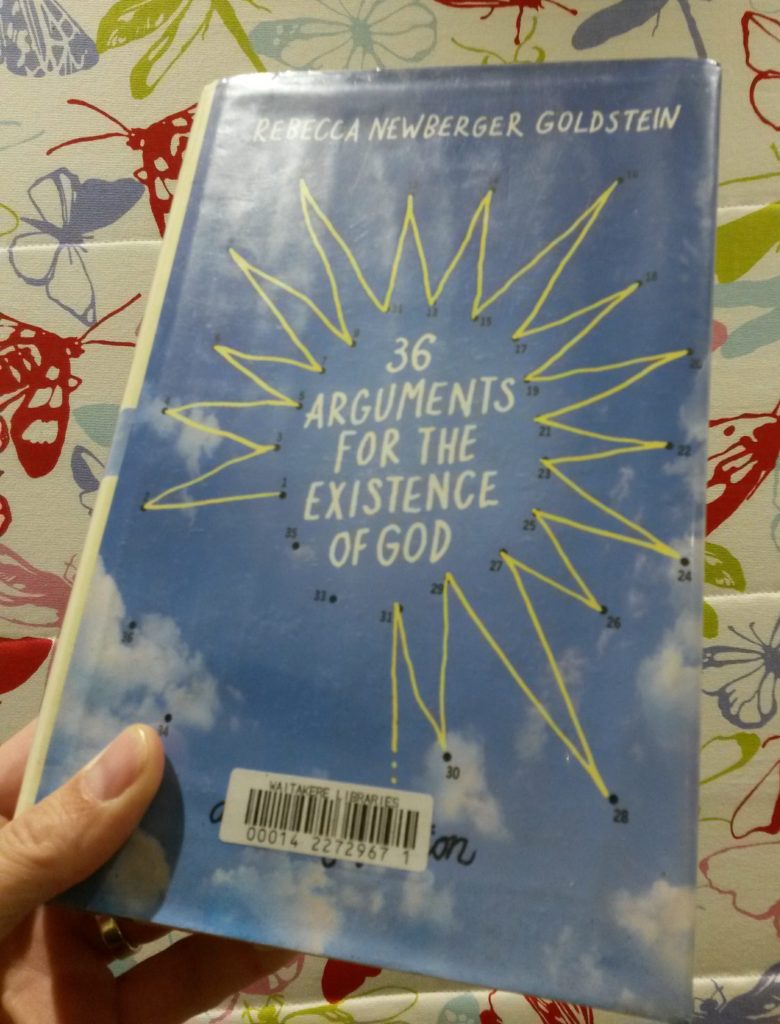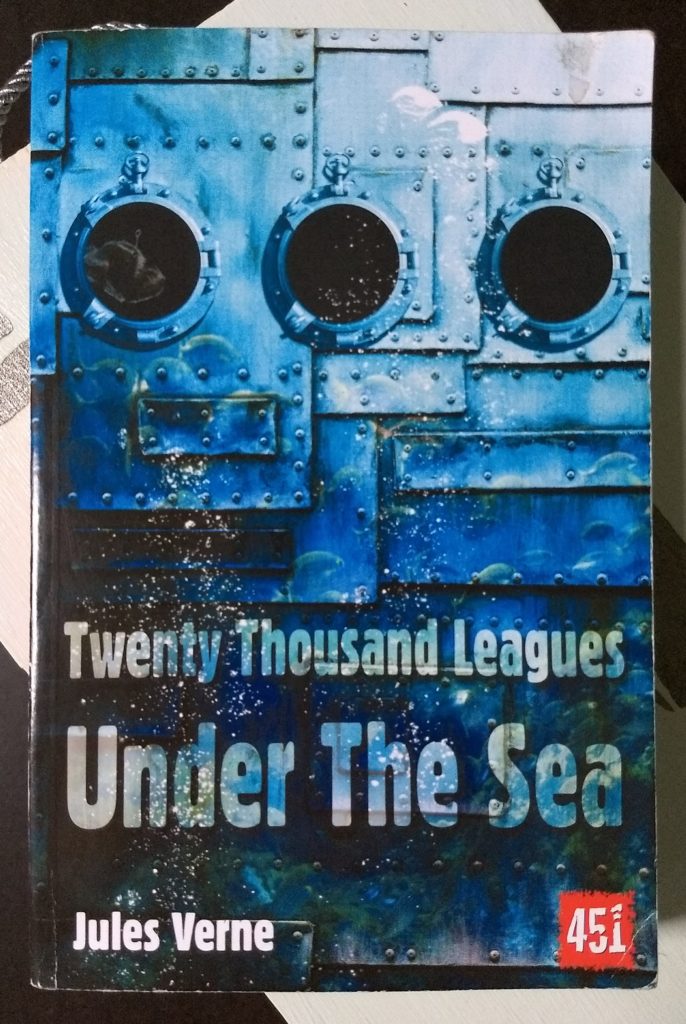 It’s good to finally read this famous book, starring the famous Captain Nemo and his famous ship the Nautilus, and discover that its fame is well-deserved: it’s a page-turning adventure story with drama, intrigue and nifty gadgets.
It’s good to finally read this famous book, starring the famous Captain Nemo and his famous ship the Nautilus, and discover that its fame is well-deserved: it’s a page-turning adventure story with drama, intrigue and nifty gadgets.
The narrator, a maritime expert, joins an expedition and eventually ends up aboard the Nautilus with couple of his companions. In a series of episodes we find out about the ship, a little about the captain, and a lot about various going-on under the sea. Verne puts a lot of really interesting and generally plausible ideas into the story, which is impressive for a speculative fiction written nearly 150 years ago. I have always wondered about the title though: I always thought that it referred to a depth of 20,000 leagues, but then I discovered that 20,000 leagues is about 100,000km, ten times deeper than any ocean. I now realise that it’s simply the distance travelled while under the sea — they circumnavigate the globe underwater, following a very meandering path.
The story was originally published in serial form, and it shows in the episodic structure. This makes it good to read bit by bit rather than all at once — very convenient for my morning and evening commute. This was recommended to me by Jay — I picked it because it stood out from most of his recommendations, which tend to be modern YA fiction. He’s also read other Verne stories: apparently Journey to the Centre of the Earth is good too.
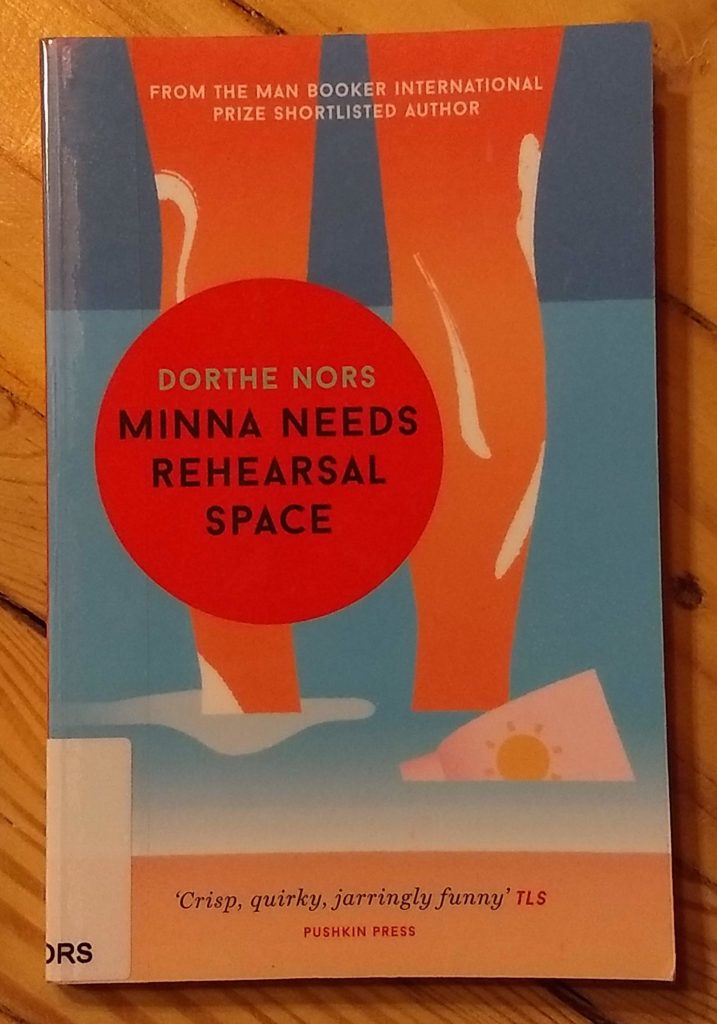
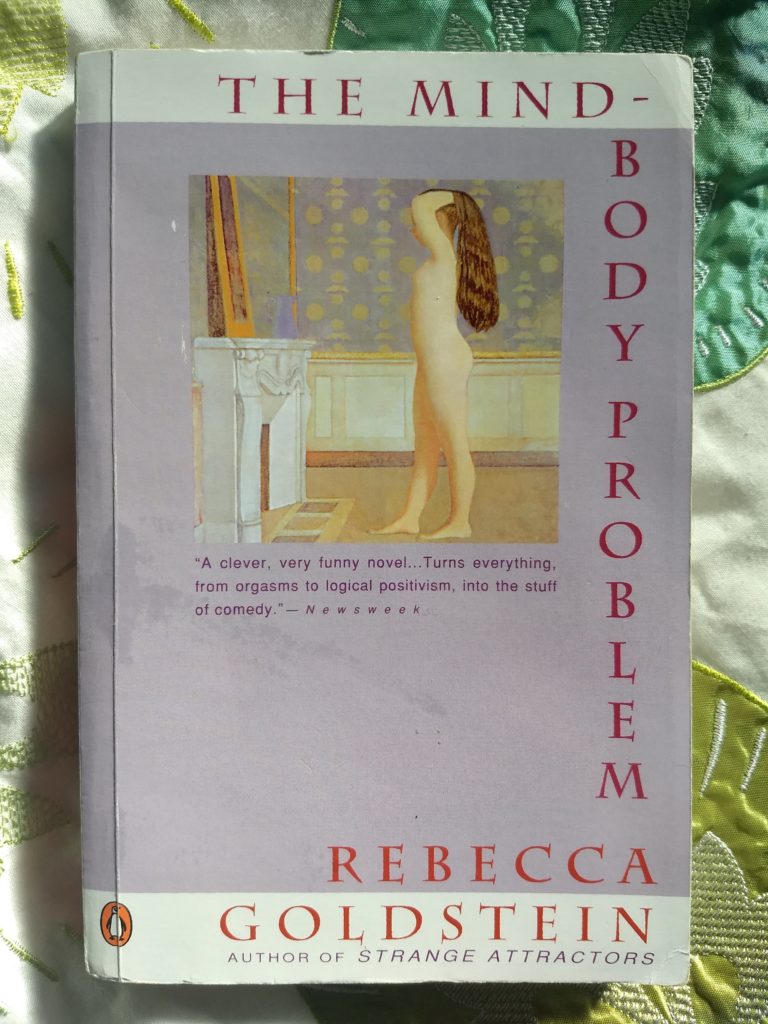 If you don’t already know a lot about the history of philosophy, you will by the time you’ve finished this book. If you do, then you’ll recognise a lot of it. Like Goldstein’s more recent
If you don’t already know a lot about the history of philosophy, you will by the time you’ve finished this book. If you do, then you’ll recognise a lot of it. Like Goldstein’s more recent 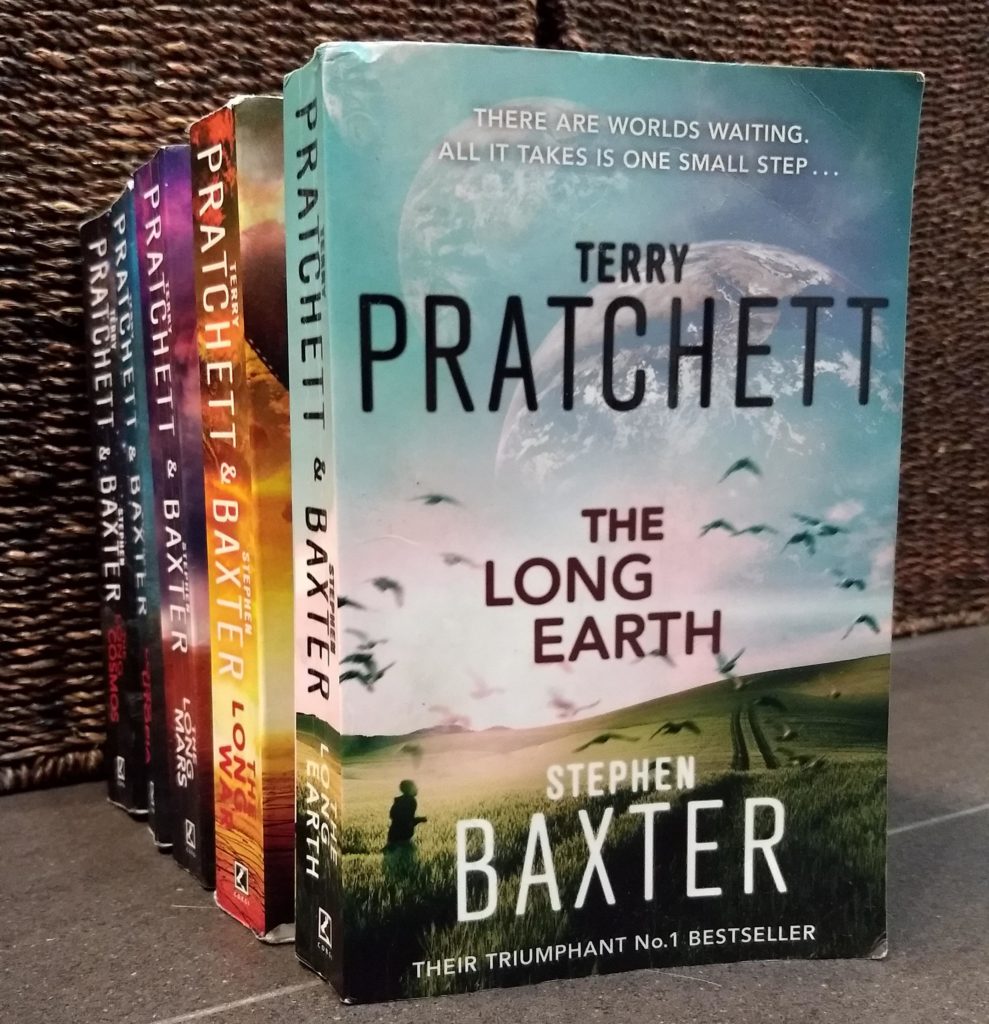
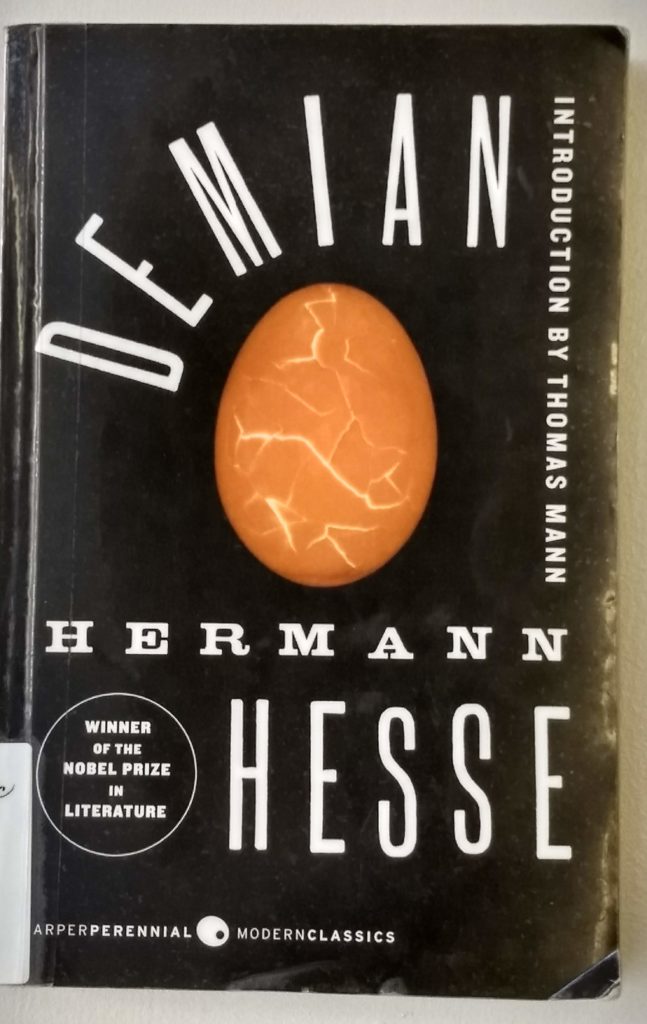 Demian is very mysterious and alluring. This book is about him and his influence on the narrator — they first meet when they are both schoolboys. Demian then turns up repeatedly as the years go by, gradually taking the narrator into a circle of freethinking misfits. It’s less fanciful than the other Hesse novels I have read, but still packs a bit of a punch.
Demian is very mysterious and alluring. This book is about him and his influence on the narrator — they first meet when they are both schoolboys. Demian then turns up repeatedly as the years go by, gradually taking the narrator into a circle of freethinking misfits. It’s less fanciful than the other Hesse novels I have read, but still packs a bit of a punch.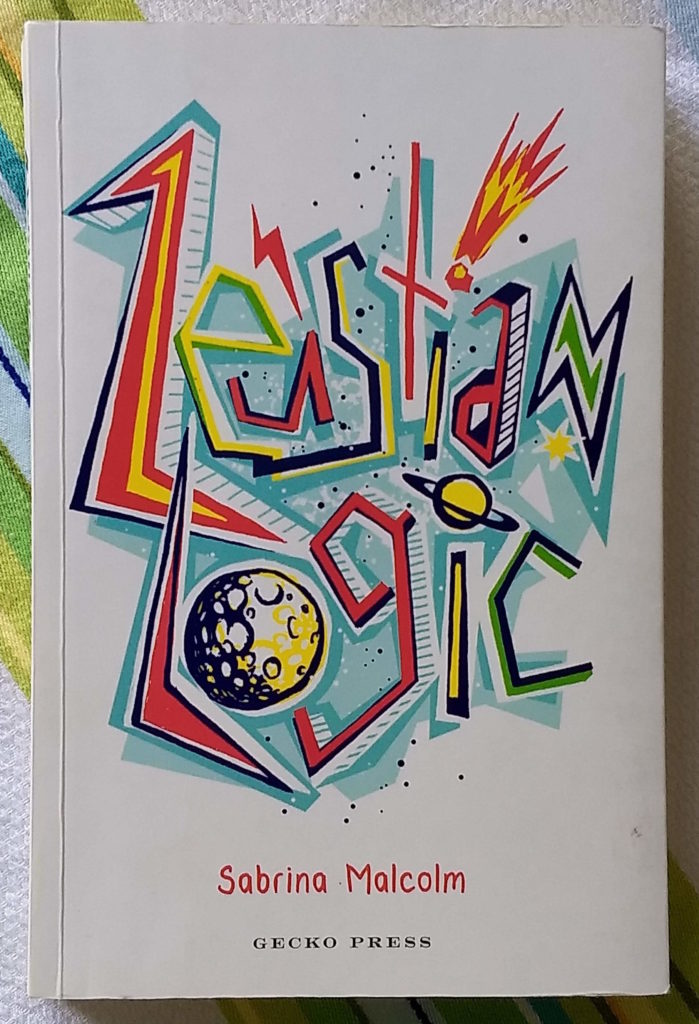 This story is more fun than you would think, given that it is about a teenage boy coming to terms with his father’s death. Astronomy and mythology are two of Tuttle’s boyish hobbies; they run like threads through the stories he tells his younger brother and the conversations he has with his friend, and also play a big part in the novel’s resolution. His father, a famous mountaineer, disappeared in controversial circumstances which made his loss even harder for his family to deal with. The repercussions continue even a year later, when the novel is set.
This story is more fun than you would think, given that it is about a teenage boy coming to terms with his father’s death. Astronomy and mythology are two of Tuttle’s boyish hobbies; they run like threads through the stories he tells his younger brother and the conversations he has with his friend, and also play a big part in the novel’s resolution. His father, a famous mountaineer, disappeared in controversial circumstances which made his loss even harder for his family to deal with. The repercussions continue even a year later, when the novel is set. It’s good to finally read this famous book, starring the famous Captain Nemo and his famous ship the Nautilus, and discover that its fame is well-deserved: it’s a page-turning adventure story with drama, intrigue and nifty gadgets.
It’s good to finally read this famous book, starring the famous Captain Nemo and his famous ship the Nautilus, and discover that its fame is well-deserved: it’s a page-turning adventure story with drama, intrigue and nifty gadgets.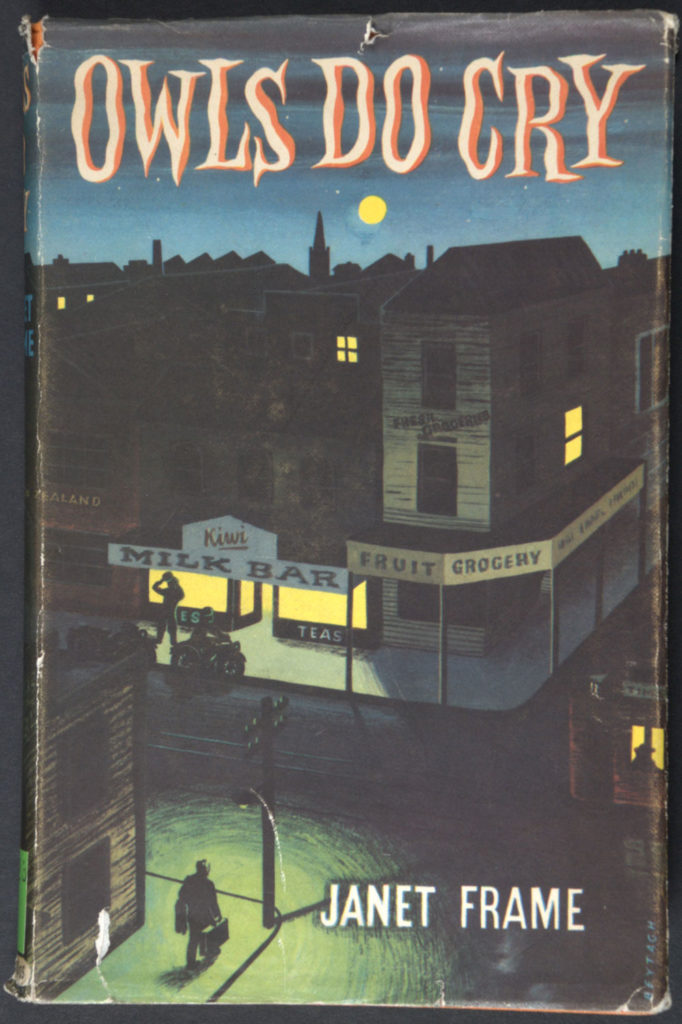 This is deservedly one of the classic New Zealand novels. When I returned it to the library, the librarian eagerly asked me how it was. I said it was really good — a novel version of Frame’s short stories. The shifting viewpoints give a broad understanding of the characters and events, and the impressionistic first-person narrative really made me feel what it must be like for the main character, living a life very different to mine. Bad things happen to her, but there are also many marvellous moments of beauty:
This is deservedly one of the classic New Zealand novels. When I returned it to the library, the librarian eagerly asked me how it was. I said it was really good — a novel version of Frame’s short stories. The shifting viewpoints give a broad understanding of the characters and events, and the impressionistic first-person narrative really made me feel what it must be like for the main character, living a life very different to mine. Bad things happen to her, but there are also many marvellous moments of beauty: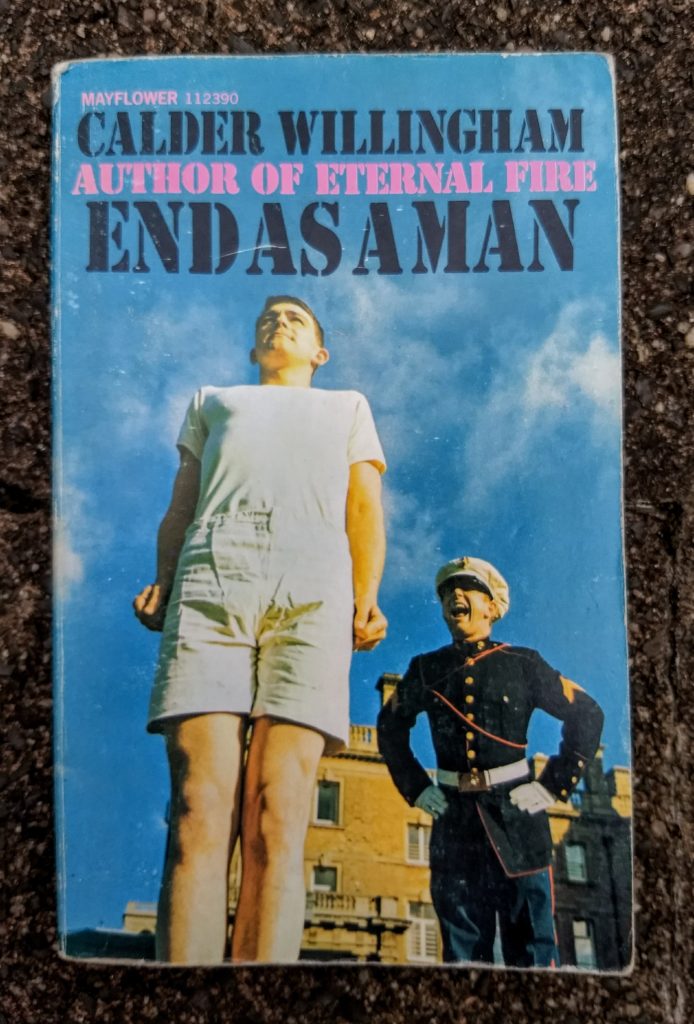 Jim Flynn put this book in his
Jim Flynn put this book in his 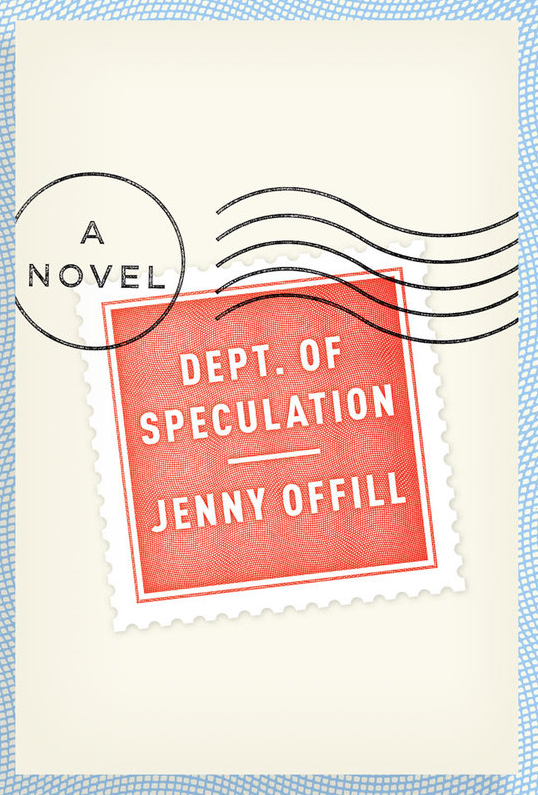 This small but perfectly-formed book is a simple story of girl meets boy and all the usual things that follow. But it’s told in an unusual way so that I sometimes felt as if I was inside the main character.
This small but perfectly-formed book is a simple story of girl meets boy and all the usual things that follow. But it’s told in an unusual way so that I sometimes felt as if I was inside the main character.